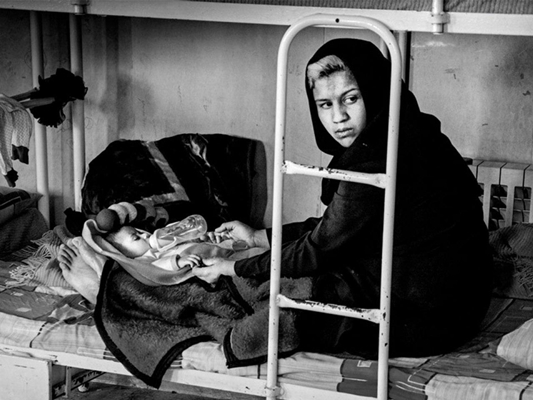Massoumeh Ebtekar announced the news on her Twitter page in a post that went viral on social media shortly after it was posted.
She said the Women and Family Affairs Department of the Presidential Office has reached agreement with the Judiciary’s Office for Crime Prevention to enforce that measure.
“Children who have no one to take care of them because their parents are behind bars are highly vulnerable,” she said.
In an interview with the government’s official website dolat.ir, Ebtekar noted she proposed the plan to help women inmates, especially mothers.
“I talked to inmates in women’s prisons [in several cities] face to face. Around three thousand women prisoners told me about their problems and I found out that women who have children are extremely concerned,” she said.
“Good measures have been adopted in women’s prisons in terms of workshops, general hygiene and welfare affairs, but still many problems exit in this domain,” she underlined.
The vice president also responded to a question on whether the plan is only applicable to women prisoners who have children.
“No point has been mentioned in this regard in the memorandum of understanding [with the Judiciary’s Office for Crime Prevention], but women who have little or teenage children, and whose husbands are in prison as well or are not home due to whatever reason and cannot look after their children, will face numerous maladies which cannot be easily overlooked,” Ebtekar said.
She said one of the points mentioned in the agreement is that arrangements be made for some women prisoners with heavy sentences to be able to serve time outside prison with handcuffs and shackles at the discretion of the judge.
“As a case in point, [those convicted of] theft or similar crimes that can serve their sentences outside jail, and this plan definitely does not apply to those convicted of murder,” she said.
The vice president said women prisoners who would be allowed to serve term outside jail can move around only within a few meters of their home or workplace.
Their handcuffs and shackles are sealed and controlled by a geographic information system (GIS), and they send signals immediately if manipulated.
She added the plan has been in force on a trial basis for two years now, and around 250 people have used it so far.
Ebtekar said the number of people who can be covered by the plan annually is much higher than 250.
